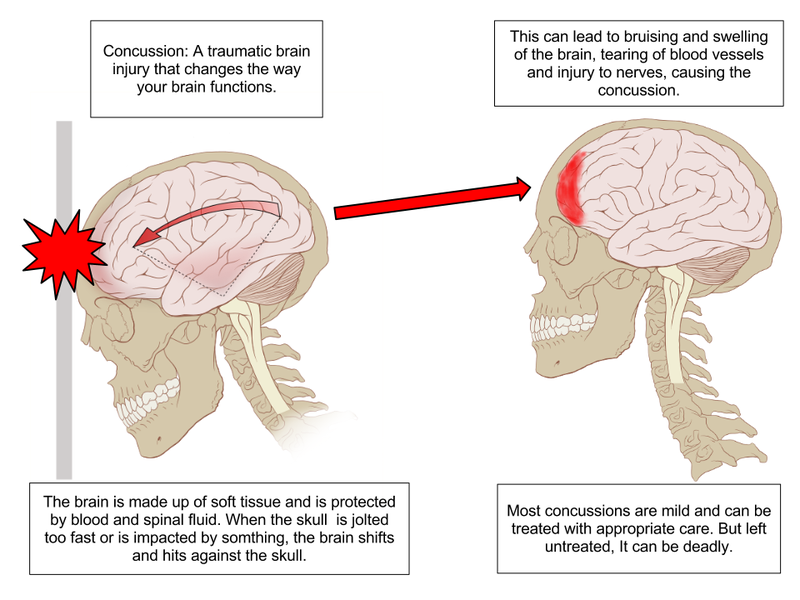 |
Image by Concussion mechanics.svg, 5/18/2012
|
There’s been a lot of attention paid of late to the problem of diagnosing concussions. How can you tell if an athlete has suffered a concussion, in which case he should be removed from play? One way is to look for biochemical markers. For example, boxers have increased levels of total tau proteins (T-tau) in their cerebrospinal fluid that correlate with the number and severity of the head blows they receive. Unfortunately, you can only analyze cerebrospinal fluid by doing lumbar punctures, which require a certain level of expertise.
Therefore, it would be nice to be able to detect a concussion biomarker with a simple blood draw. Luckily, there is now an ultra sensitive digital immunoassay that can measure T-tau in blood samples. Scientists led by Pashtun Shahim of Sahlgrenska Academy at the University of Gothenburg used the new method to quantify levels T-tau in the blood serum of hockey players.
Out of 288 players in the Swedish Hockey League, researchers took blood tests from 47 prior to the start of their professional season. During the season, 35 athletes suffered concussions (based on current guidelines), and 28 of them provided blood samples at 1, 12, 36, and 48 hours and 144 hours after the injury. It should be noted that these 28 were not necessarily the same men who had given the pre-concussion samples.
T-tau was significantly increased in all the post-concussion samples with the highest levels measured during the first hour. T-tau was also higher in players with more severe concussions, like those who had lost consciousness. This means that T-tau levels immediately after concussion could be used to predict when an athlete could safely return to play.
Obviously, these results are mere correlations at this point. And of course, we don’t have baseline measurements of the same people pre and post-concussion. However, if the results do pan out, measuring blood levels of T-tau could be a valuable tool in determining which athletes should be cleared for competition.
No comments:
Post a Comment